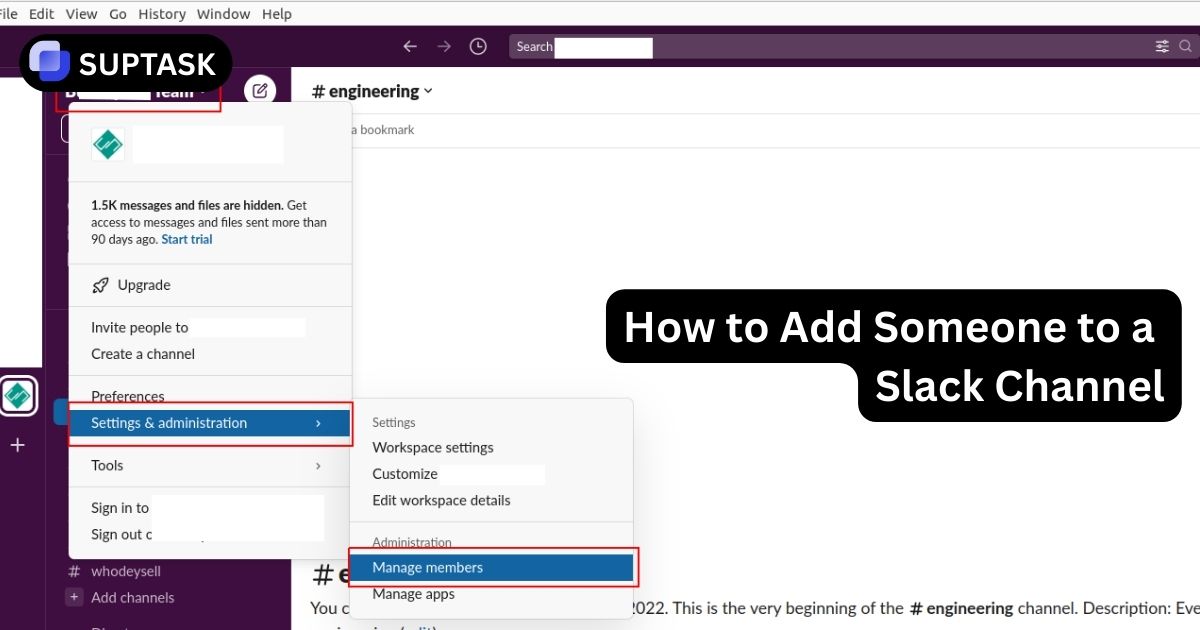It takes innovative approaches to manage a remote team to promote collaboration, sustain output, and preserve corporate culture.
This article provides helpful advice on managing remote workers, such as creating transparent policies, fostering trust, utilizing technology, and encouraging diversity.
Key Takeaways
- Establishing clear guidelines, work hours, communication protocols, and deadlines is essential for effective remote team management.
- Build a culture of trust in remote teams by being transparent, empowering members, avoiding micromanagement, and conducting regular check-ins.
- Effective remote leadership combines vision, empathy, and flexibility. It emphasizes leading by example, making compassionate decisions, and fostering collaboration.
Establishing Clear Guidelines for Remote Work

Clear rules are the cornerstone of a productive remote work environment. Since they don't have an office, remote workers require structure to manage their daily responsibilities efficiently.
To ensure everyone agrees, it is essential to start by creating a clear policy for remote work.
Recording procedures, productivity standards, and expectations are essential to ensure that work-related tasks are not confused.
As a remote manager, you must have a documentarian mentality, proactively providing your staff with the tools they need and establishing standards for yourself that encourage sustained productivity.
Defining Work Hours and Availability
Flexible scheduling has many advantages in a remote work setting, but it is not without its challenges.
Remote workers must communicate their usual working hours to avoid misunderstandings and promote smooth collaboration.
To maintain open communication and respect for their coworkers' time, employees should use updates or out-of-office messages when they cannot work.
The remote worker may maintain a steady pace and promote work-life balance by achieving this balance.
Communication Protocols and Tools
Establishing clear protocols and using the right communication tools can improve the effectiveness of interactions between remote teams. Incorporating the ability to triage tickets ensures that urgent issues are prioritized efficiently.
The contact's goal should determine whether to hold a more formal team meeting via video conference or an immediate message exchange on a chat platform. Response timeframes should also be clearly stated.
In these situations, good communication requires active listening, clarifying understanding through questioning, and clearly delineating roles.
This method ensures that every team member is completely understood in addition to being listened to.
Project Deadlines and Deliverables
Clear management of project timeframes and expected deliverables is essential for remote teams to succeed. To maintain team alignment, a comprehensive project scope that delineates the objectives and deliverables must be communicated.
Additionally, a timeline featuring key milestones must be established and communicated.
A clear process for turning in completed assignments and early risk identification are essential components of an efficient remote team management strategy that also promotes teamwork.
Building a Culture of Trust in a Remote Setting
.webp)
Building a trusting environment is essential to the success of remote teams. In a remote work setting, open communication ensures that everyone feels informed, respected, and included.
Encouraging and supportive work environments might result from managers who adapt their management style to remote workers' particular communication preferences.
Having faith in your employees and becoming skilled at managing them from a distance is essential when managing a remote team.
This increases employee involvement in the virtual working environment and fosters teamwork. Becoming skilled at managing workers from a distance opens the door to creating a cohesive and productive remote workforce.
Empowering Team Members
Building trust, recognizing employees' accomplishments, and developing conflict resolution skills are critical for remote managers to create a supportive, growth-oriented work environment.
Emphasizing mentorship programs that strengthen social interactions while adjusting strategies to each team member's preferences can foster a sense of community.
These programs provide guidance, facilitate knowledge exchange, and advance professional development.
Avoiding Micromanagement
Micromanagement has the potential to seriously damage trust, particularly in distant settings.
Instead of continuing with constant supervision, managers ought to focus on the outcomes, which will foster an environment of independence that fosters the growth of remote workers.
Using technology wisely and promoting open communication about job responsibilities can strengthen dependability, enhance accountability, and promote the development of management strategies that benefit each team member individually as well as the group as a whole.
Regular Check-Ins for Support
Leaders can regularly schedule brief team meetings or one-on-one meetings to provide essential emotional support to remote team members and stay informed about job progress.
These check-ins are crucial for lessening the sense of isolation that members of a remote team, including cross-functional teams, may experience.
They give leaders the chance to address particular concerns raised by team members, recognize their accomplishments, and make sure everyone is on the same page regarding the group's overarching objectives—all of which contribute to the group's continued development.
Leveraging Technology for Seamless Remote Management
.webp)
Utilizing technology, which enables clear communication and collaboration regardless of geographic boundaries, is the cornerstone of effective remote team management.
Implementing digital tools for project management, instant messaging software, and different online collaboration platforms greatly enhances the dynamics of a remote work environment, resulting in higher productivity and better team cohesiveness.
It's critical for individuals responsible for managing remote employees to arm themselves with the right tech tools so they can effectively lead their teams.
Ensuring that these resources are accessible is essential for keeping projects moving forward in a virtual workspace configuration.
Project Management Platforms
With features like checklists and due dates, project management platforms like Trello provide easy-to-use solutions that boost productivity for remote teams while streamlining the process.
Central hubs like VirtualSpace and Asana, which allow for project tracking and relevant discussions, help dispersed team members coordinate more easily.
Real-Time Communication Apps
By integrating real-time communication apps like Microsoft Teams and Slack, remote teams can greatly increase connectivity through continuous asynchronous chats. Tools like Suptask, a ticketing system for Slack, elevate productivity and help desk services.
When these platforms are combined with video calls that facilitate deeper conversations, global team members' cooperation and trust are fostered. This connectedness approaches that of in-person meetings.
Digital Collaboration Tools
Remote workers can collaborate on group papers and assignments at the same time using online collaboration platforms like Dropbox and Google Drive, which increases productivity for file management and job fulfillment.
By creating a central location for papers, team members may communicate more effectively and the paperwork is kept cleaner, which maximizes collaboration in the remote office.
FAQ
How can I ensure my remote team feels included and informed?
Maintain transparent communication with various tools, clear protocols, and regular check-ins.
What can I do to help my remote team members avoid burnout?
Encourage regular breaks, set clear work-life boundaries, and provide emotional support.
How can I track my remote employees' progress without micromanaging?
Use digital task management tools, set milestones, and offer continuous feedback.
How can I support my remote employees' career progression?
Provide ongoing educational opportunities, transparent career paths, and consistent performance assessments.
How can I maintain inclusivity across different time zones in my remote team?
Use digital calendars, promote asynchronous communication, and alternate meeting times.













